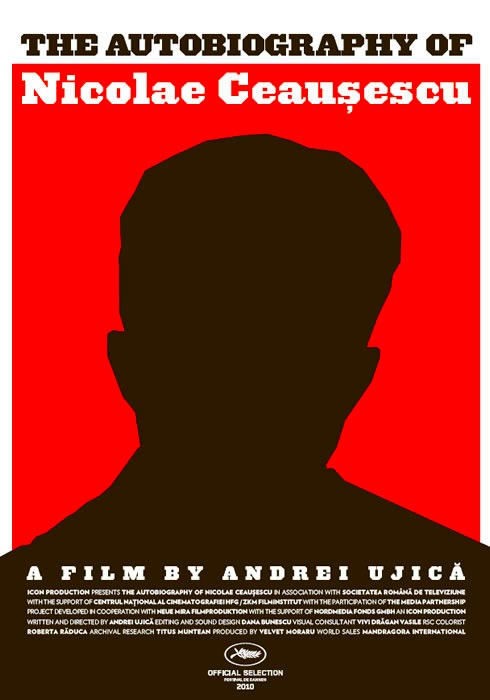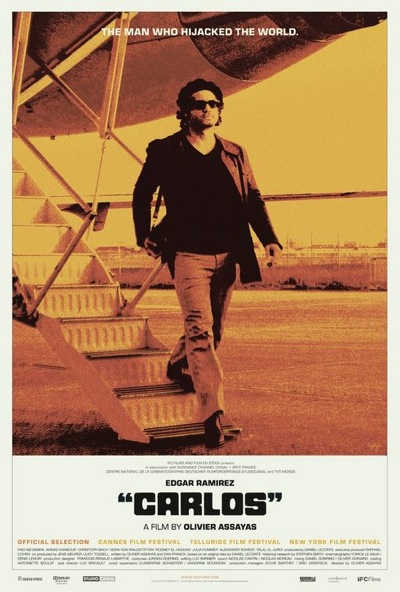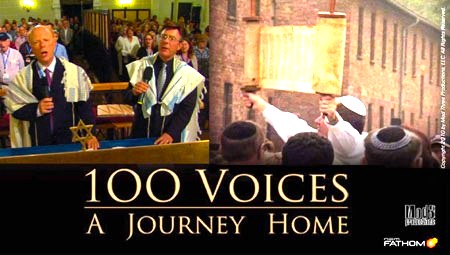By Joe Bendel. There was a time when Nicolae Ceaușescu got all the Iron Curtain’s favorable press. Many in the foreign policy establishment considered him reasonable, even reform-minded based on some shrewd public relations moves, like his measured criticism of the 1968 Soviet invasion of Czechoslovakia. However, the 1989 Revolution ripped down the façade, revealing to the world the monster that had long oppressed Romania. Of course, every dictator sees himself as an enlightened Caesar – and has the state-produced propaganda to prove it. Culling 180 minutes from over 1,000 hours of archival footage, Romanian director Andrei Ujică assembled a video-collage of Ceaușescu’s life as it was perceived by the dictator and recorded by his state cameras in The Autobiography of Nicolae Ceaușescu (trailer above), which screens this Saturday during the 2010 New York Film Festival.
Defiant to the end, Nicolae Ceaușescu refuses to cooperate in the hastily assembled trial following the Revolution (he would say coup) that removed him from office. Indeed, his has been a life of destiny as we watch his storied career in flashbacks, courtesy of the state propaganda ministry.
 From his meteoric rise following the death of his Stalinist mentor Gheorghe Gheorghiu-Dej, Ceaușescu might have displayed a bit of independence in foreign policy – but aside from his support for Prague Spring, this usually manifested itself in uncharacteristically warm relations with the Warsaw Pact’s Eastern rivals, the Chinese and Vietnamese (here was a man who could appreciate a personality cult). Still, he certainly seemed to enjoy entertaining western heads of state, including President Nixon (who also appears to relish his photo ops with one of the few world leaders he physically towered over). We watch as Ceaușescu celebrates birthdays, receives dignitaries, and opens party conferences. He briefly condemns a spot of hooliganism in Timişoara and then suddenly he is facing an ad-hoc inquest. Of course, the real story is much more dramatic and far bloodier.
From his meteoric rise following the death of his Stalinist mentor Gheorghe Gheorghiu-Dej, Ceaușescu might have displayed a bit of independence in foreign policy – but aside from his support for Prague Spring, this usually manifested itself in uncharacteristically warm relations with the Warsaw Pact’s Eastern rivals, the Chinese and Vietnamese (here was a man who could appreciate a personality cult). Still, he certainly seemed to enjoy entertaining western heads of state, including President Nixon (who also appears to relish his photo ops with one of the few world leaders he physically towered over). We watch as Ceaușescu celebrates birthdays, receives dignitaries, and opens party conferences. He briefly condemns a spot of hooliganism in Timişoara and then suddenly he is facing an ad-hoc inquest. Of course, the real story is much more dramatic and far bloodier.
More or less billed as an object lesson in film as a propaganda tool, Ujică did not set out to create a revisionist history or to humanize the permanently deposed dictator. However, the film might have that unintended effect on audiences not privy to Ujică’s underlying concept or his past work documenting the 1989 uprising in Videograms of a Revolution. This is a particular risk here in New York, where art-house patrons consider themselves politically sophisticated but are easily manipulated by propagandistic images exactly like those in Autobiography.
Running a full three hours, Autobiography is a hugely ambitious work, but frankly it is a grueling viewing experience. One scene of Ceaușescu fondling the bread of a well-stocked Potemkin market during a photo op makes the point. The second constitutes overkill. In fact, there is constant and deliberate repetition throughout Ujică’s film, as each Party conference and state visit blends into the next. Perhaps this is a deliberate strategy to convey the rigidly homogenous nature of Ceaușescu’s artificially constructed reality, but it is wearying for viewers looking for a lifeline to grasp unto.
As the highly problematic Autobiography currently stands, there is no footage that even mildly criticizes Ceaușescu’s twenty-five year misrule. How could there be? Any employees of the propaganda ministry not properly lionizing their master would have faced severe (probably fatal) reprisals. As a result, the entire film is much like Kim Il-sung’s massive welcoming ceremony, a hyper-real but static spectacle, ironic in its conspicuous lack of irony. Ujică proves himself a daring filmmaker, but to what end? Autobiography is ultimately a film for those who have an affinity the vintage aesthetics of the Soviet era, regardless of the messy history involved, essentially unreconstructed leftists and ironic hipsters. Not recommended, it nonetheless screens this Saturday (10/9) at the Walter Reade Theater as a special presentation of the 48th NYFF.
Posted on October 4th, 2010 at 9:13am.



